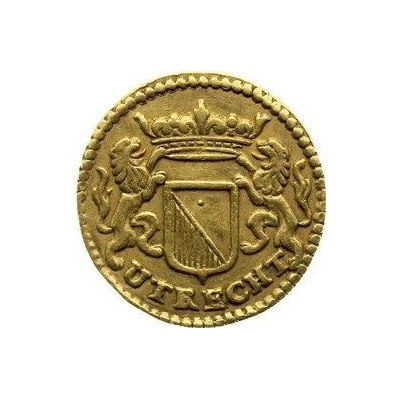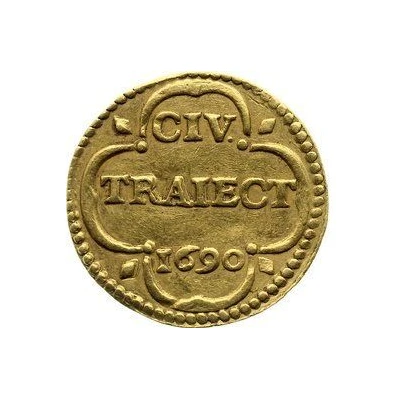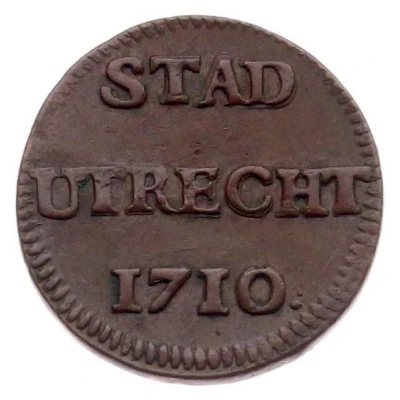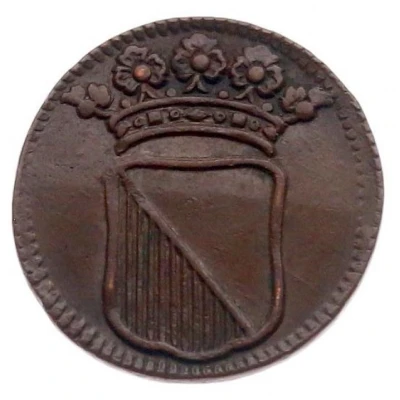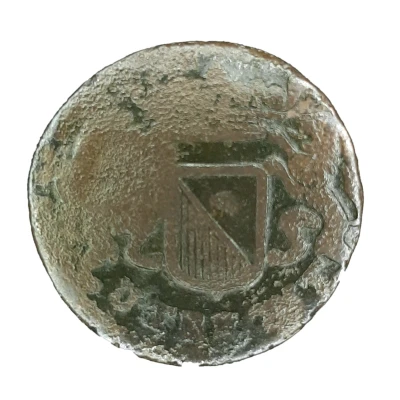
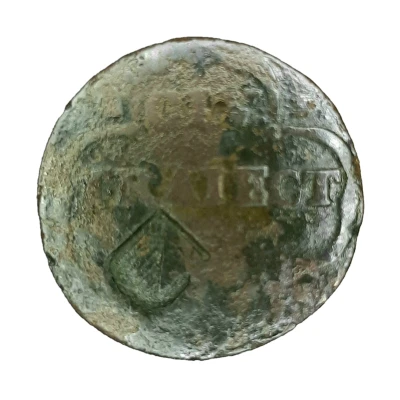

1 Duit Countermarked ND
1702 year| Copper | 2.2 g | 21.5 mm |
| Issuer | City of Utrecht (Dutch Republic) |
|---|---|
| Type | Standard circulation coin |
| Year | 1702 |
| Value | 1 Duit (1⁄160) |
| Currency | Gulden (1581-1795) |
| Composition | Copper |
| Weight | 2.2 g |
| Diameter | 21.5 mm |
| Shape | Round |
| Demonetized | Yes |
| Updated | 2024-10-06 |
| Numista | N#405185 |
|---|---|
| Rarity index | 97% |
Reverse
City name in two lines, date, within quatrefoil. City arms counterstamp.
Script: Latin
Lettering:
CIV
TRAIECT
1689
Unabridged legend:
Civitas
Traiectum
Translation: City of Utrecht
Comment
Duit type KM# 66 / Verkade 116.4 with counterstamp of city arms.
In beginning of 1702 coins were marked in Utrecht:
Numerous regulations over a long period of years had not achieved the intended goal: stopping the importation of foreign inferior and imitation tokens. A further placard from December 1701 warned again, with hefty fines, against bringing bad copper money into the city. The Utrecht “duiten”, minted before 1657, had already been reduced in value for this reason. On January 16, 1702, the mayors and council decreed that the next day from 9 a.m., everyone would have the opportunity to have good urban money stamped with a city coat of arms (6 x 5 mm, vertical hatching) at no additional cost. Unmatched coins would then be halved in value. As usual, this measure did not lead to the desired result; the knock was also simulated. Just a month and a half later, all Utrecht money was further reduced to a half duit. From 1710 onwards, new heavy coins were created, a measure that had already been taken in a number of other cities and regions, often after equally unsuccessful attempts to reorganize the copper money.
from: Munten van de stad Utrecht (Centraal Museum Utrecht, 1978, Frank Pietersen)
Interesting fact
The 1 Duit coin from the City of Utrecht (Dutch Republic) was countermarked with a unique symbol, the "Utrecht Cross", which was used to indicate that the coin was issued by the city. This countermark was applied to the coin after it was minted, and it's a distinct feature that sets this coin apart from other coins of the same denomination.
